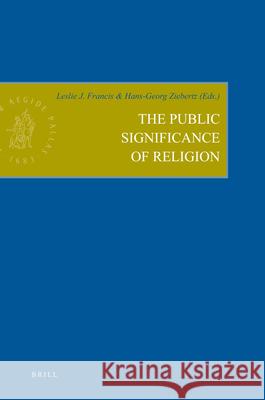The Public Significance of Religion » książka
The Public Significance of Religion
ISBN-13: 9789004207066 / Angielski / Twarda / 2011 / 508 str.
This book reflects on the idea that religion represents a force in the public realms of society. The empirical evidence reveals a regained relevance for and commitment to religion re-emerging in secularized countries, but also that it does so in a new form: unexpected, foreign, and maybe even dangerous. If religion regains public significance in social debates, what are its characteristics in terms of topics and interests, actors and parties? How is this experienced and evaluated by different groups in society? What are the motives of religious groups and churches to re-enter the public domain and are they effective? What is the importance of religious groups claiming participation (consulting, steering, and dominating) in public debates? How do different religious and nonreligious groups evaluate the impact of religion on the public environment, and under which conditions can it be regarded to be functional or dysfunctional? Scholars who address these questions do so from a theological or a religious studies' perspective. They reflect on the phrase 'public significance' of a religion in its political, cultural, and typical religious dimension. The book points out what tendencies can be observed when different religions profile themselves competitively in public debate, and to what extent ethnic and national identities intervene in this interreligious interaction.











